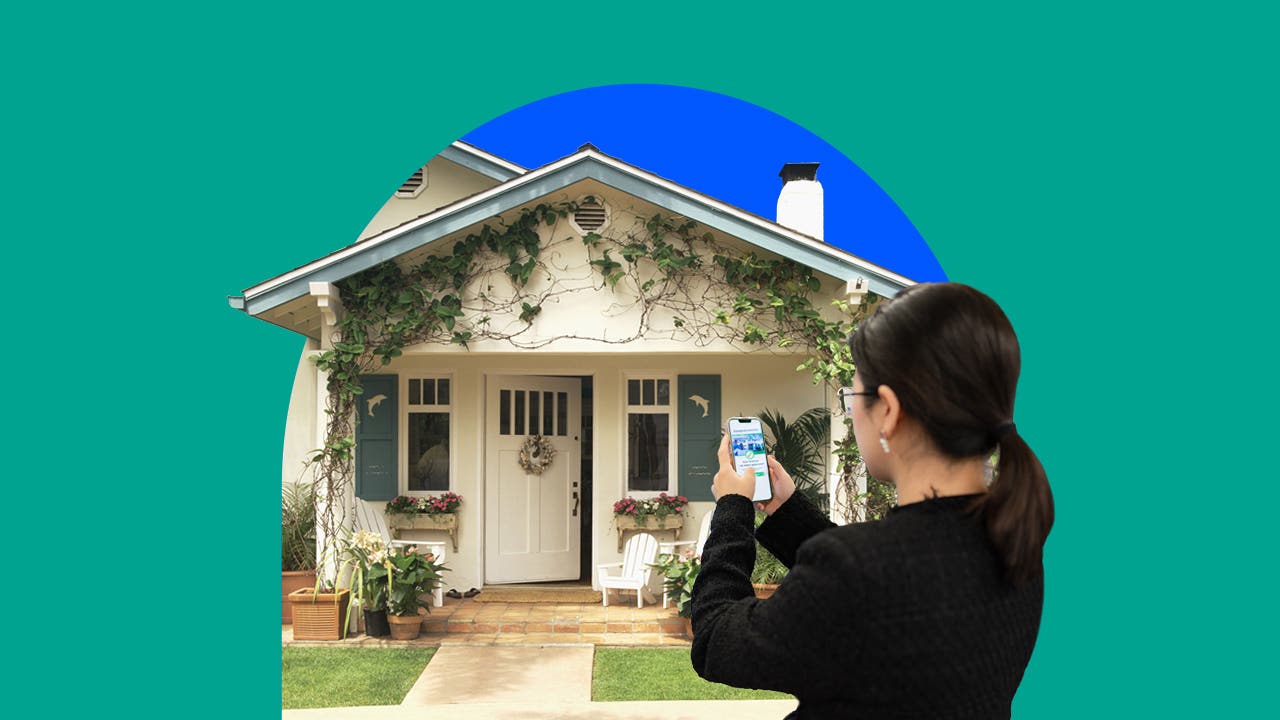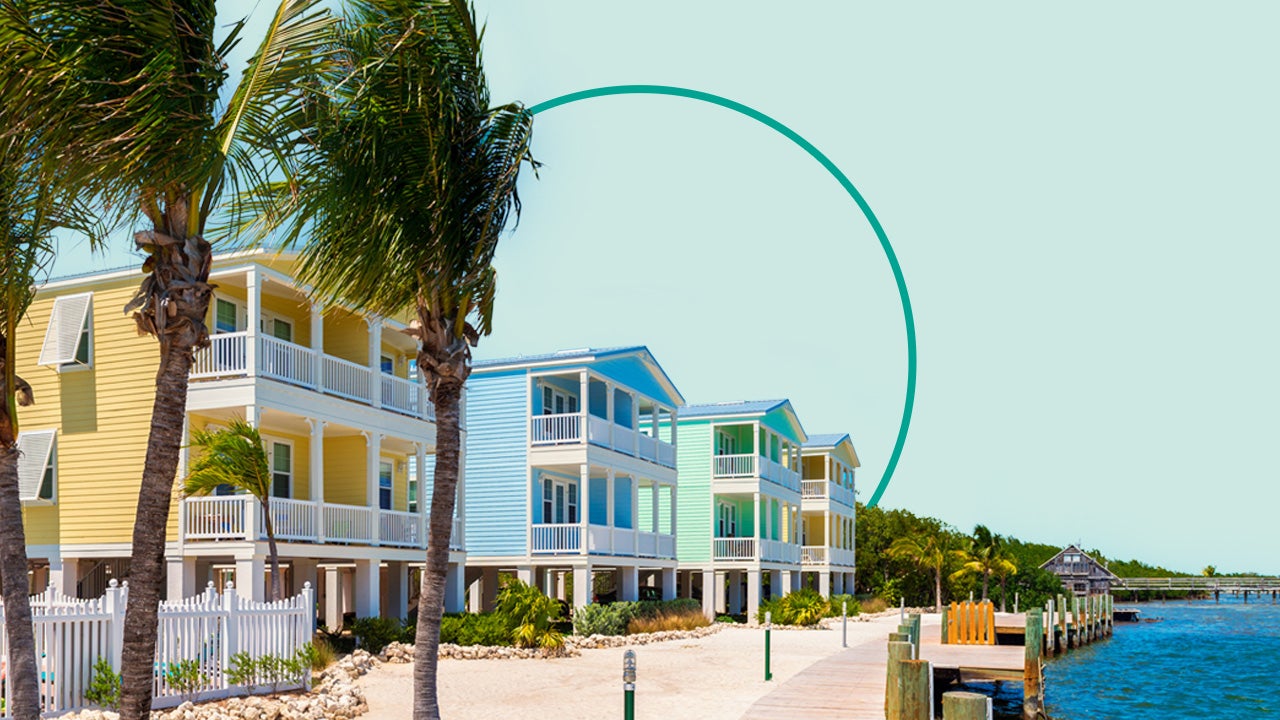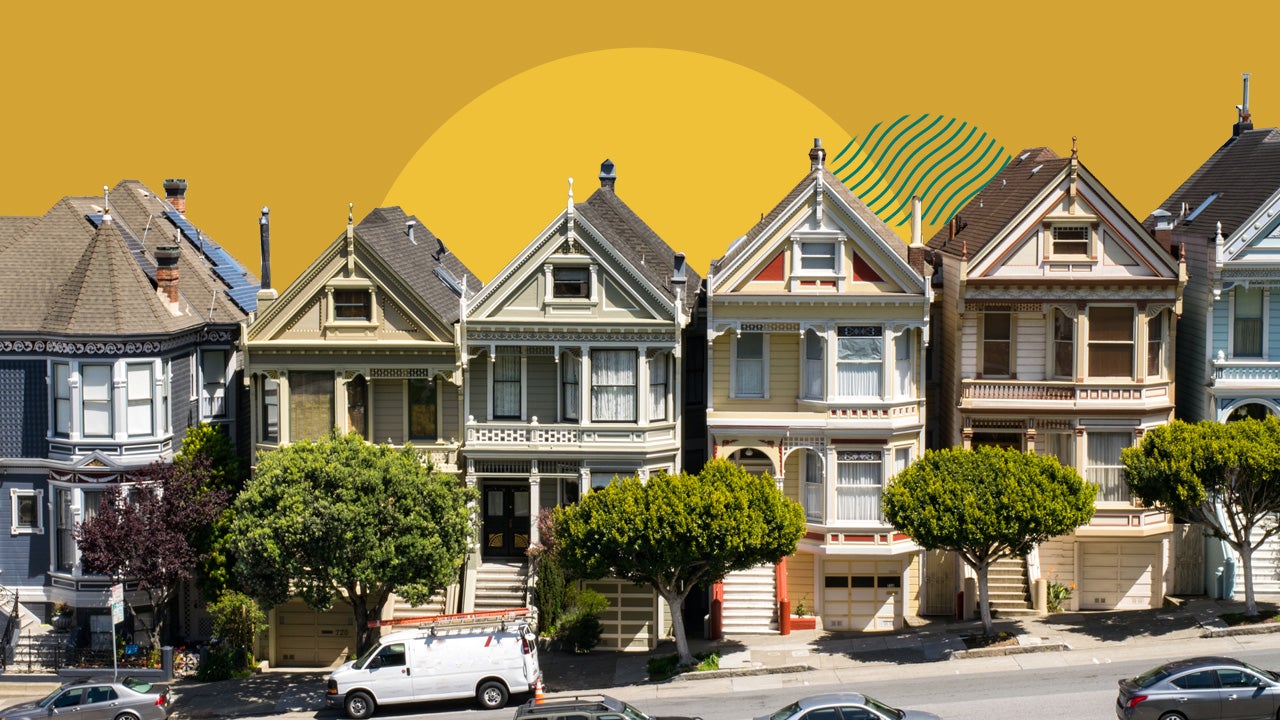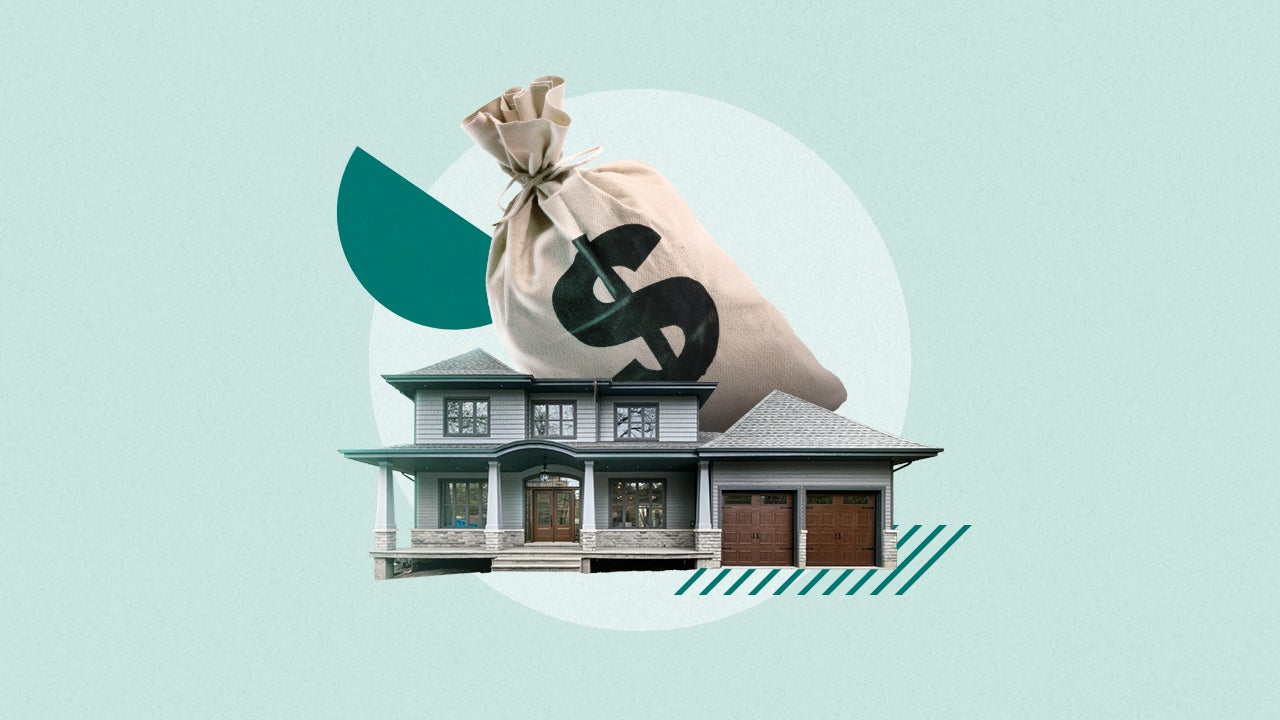Best online mortgage lenders in 2025

When you work with an online mortgage lender, the entire application process often happens without any face-to-face interaction. Online mortgage companies don’t have branch locations; instead, they operate exclusively online. To assemble our list of the best online lenders, we’ve reviewed over 80 lenders for affordability, availability and borrower experience. Here are our top picks for 2025.
Best online mortgage lenders of 2025
| Online mortgage lender | Bankrate Score | Minimum credit score | Minimum down payment |
|---|---|---|---|
| Tomo | 4.9 | 580 for conventional loans | 3% for conventional loans, 3.5% for FHA loans, none for VA loans |
| Better | 4.9 | 620 for conventional loans, 580 for FHA loans, 620 for VA loans | 3% for conventional loans, 3.5% for FHA loans, none for VA loans |
| Zillow Home Loans | 4.8 | 620 for conventional loans | 3% for conventional loans, 3.5% for FHA loans, none for VA loans |
| Sage Home Loans | 4.9 | 620 for conventional loans, 580 for FHA loans | 3% for conventional loans, 3.5% for FHA loans, none for VA loans |
| Bison State Bank | 4.7 | 620 for conventional loans, 580 for FHA loans, 580 for VA loans | 3% for conventional loans, 3.5% for FHA loans, none for VA loans and USDA loans |
| LowRates.com | 4.8 | 620 for conventional loans, 700 for jumbo loans, 580 for FHA loans, 500 for VA loans | 3% for conventional, 3.5% for FHA loans, none for VA loans |

Tomo
-
This newer entrant to the mortgage space touts itself as a nimble, customer-friendly lender. It offers competitive mortgage rates, with below average APRs, and claims customers save an average of $4,000 on closing costs relative to other lenders.

Better
-
Better offers mortgages for home purchases and refinancing, as well as connections to real estate agents and attorneys, title and closing services and homeowners insurance. Its perks include no fees and the “One Day Mortgage,” a process that turns around an underwriting decision in a breezy 24 hours.

Zillow Home Loans
-
Zillow Home Loans boasts an easy-to-navigate, information- and tool-packed website. It also offers special programs, such as one that lets qualifying buyers put 1% down on their loan.

Sage Home Loans
-
Sage Home Loans is a direct digital mortgage lender working with borrowers in the majority of states in the U.S. It charges flat fees for origination and processing and tends to offer APRs below market average.

Bison State Bank
-
Bison State Bank is a national lender with competitive rates and a variety of loan offerings — and, unlike many other lenders, it doesn’t charge an origination fee.

LowRates.com
-
Owned by Sun West Mortgage Company, LowRates.com strives to offer exactly what its website promises: lower rates. It stands out for its 24-hour loan center, speeding up the loan approval and closing process for borrowers. It works with applicants in most states and some U.S. territories.
Can you get a mortgage entirely online?
Yes, it is possible to get a mortgage entirely online. The traditional lending process requires borrowers to visit a branch in-person and apply for a mortgage there. However, online lenders allow borrowers to shop for a mortgage, complete the application, upload documents and respond to underwriting queries all online. Some lenders even offer e-closings.
How to find the best online mortgage lender for you
Many borrowers gravitate to online mortgage lenders for their convenience, efficiency and speed. These are important factors to consider when looking for the best online mortgage lender, but it’s also crucial to compare costs for your individual situation, and take the time to read mortgage lender reviews to learn what to expect from the online experience. When comparing digital lenders, look for:
- The kinds of loans they offer
- Credit and down payment requirements
- Origination fees
- Rate locks and other perks
- What support options are available
Keep in mind that these days, even more traditional lenders typically have online capabilities, as well.
Does an online mortgage lender have lower rates?
Some online lenders might advertise lower mortgage rates than their brick-and-mortar competition because they have less overhead. However, that doesn’t necessarily mean you’ll get a lower annual percentage rate (or APR) — the cost of the interest rate plus fees. The rate you’re offered often has more to do with your credit and financial profile and prevailing market trends, as well as your mortgage repayment term. For example, 30-year mortgage rates tend to be higher than those for 15-year loans. It can pay off to shop around with at least three different mortgage lenders, online or otherwise.
Pros and cons of online mortgage lenders
Getting a mortgage is one of the most consequential decisions of your life — in some cases, you might be paying back the same loan for the next 30 years. With that in mind, it’s important to understand the advantages and drawbacks of opting for an all-online mortgage experience.
Pros of online mortgage lenders
- Speed: Many online mortgage lenders use proprietary systems and tools to help expedite the loan approval and underwriting process.
- Often charge fewer fees: Some online mortgage lenders forgo fees, which can save you money at closing.
- Potentially lower rates: Some online mortgage lenders run less expensive operations, which could translate to lower interest rates.
Cons of online mortgage lenders
- Limited loan options: If you’re looking for a USDA loan, to refinance or obtain something other than a conventional mortgage, you might be disappointed — some online mortgage lenders only specialize in just a few types of loans.
- Lack of in-person support: While many online mortgage lenders do offer phone-based customer assistance, applying for a mortgage can be an overwhelming process. If you want to be able to speak to a representative in person, you’re better off with a lender that has branch locations.
- Might not work for unique circumstances: While algorithms can help speed along the process for a borrower with an easy-to-understand financial situation — a standard W-2 employee with a steady paycheck, for example — they aren’t great if your finances are more complicated.
Next steps to apply for an online mortgage
Step 1: Strengthen your credit score – Before applying for a loan, take a hard look at your credit history and work to improve your score by paying down outstanding balances. Also, resist taking on any more debt and/or applying for any other loans or lines of credit.
Step 2: Set a budget – It’s important to understand how much house you can afford before you go shopping. Note that you may be preapproved for more money than what you can comfortably afford.
Step 3: Understand your mortgage options – There are a few different types of mortgages. Know what they are and which one you want.
Step 4: Compare several lenders – Rate-shop with at least three different lenders to get the best deal on rates, fees and terms. It’s not just about the rate, though: Do your research and read customer reviews of those mortgage lenders to see what other borrowers have to say about their experience.
Step 5: Get preapproved for a mortgage – Apply for mortgage preapproval with several lenders to compare offers and get accurate loan pricing for your specific situation. Preapproval shows sellers that you’re a serious shopper and that you have the financial backing to bid on a home.
FAQs
-
An online mortgage is a home loan originated by a lender based either entirely on the web, with a digital end-to-end experience from application to closing, or a brick-and-mortar company with in-person locations and online services. While several big banks have built out their capabilities to include a digital mortgage platform, many mortgages are also being originated by non-bank institutions, like LoanDepot and Rocket Mortgage.
-
With an online mortgage, all or many of the steps in the lending process can be completed electronically, whether through an app or online portal. These steps might include: preapproval or prequalification; application and document upload; loan processing and underwriting; and closing (sometimes called an e-closing). By streamlining these steps — and, in the case of a digital lender, having no offices and overhead — online mortgages tend to have lower rates and overall costs.
-
The best mortgage option depends on your needs and qualifications as a borrower. Both online lenders and banks can offer distinct advantages, so it’s difficult to determine which is the better option. Online lenders stand out for offering convenience and quick results for borrowers.
-
Generally, yes. You can get an FHA loan through many online lenders with a minimum credit score of 580 and 3.5% down, or a credit score as low as 500 if you put 10% down. Most conventional loans with online lenders require a minimum credit score of 620. (If your credit situation includes unique challenges such as a past bankruptcy or a recent divorce, be prepared to explain the situation to your loan officer.)
-
To determine the best mortgage refinance lenders, Bankrate periodically evaluates more than 75 lenders for factors relating to affordability, availability and borrower experience, assigning each a Bankrate Score out of five stars. The best online mortgage lenders generally have a Bankrate Score of 4.6 stars or higher. Learn more about our methodology.
Why we ask for feedback Your feedback helps us improve our content and services. It takes less than a minute to complete.
Your responses are anonymous and will only be used for improving our website.
You may also like

Best mortgage lenders in Florida in 2025

Best mortgage lenders in California for 2025

Best jumbo mortgage lenders in 2026

Best mortgage lenders of February 2026




